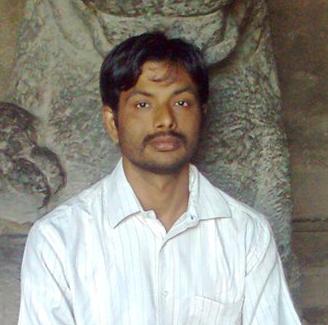Chhattisgarh: where mines have electricity but tribals live in darkness

Every night, hearts of Adivasis at the Kendai village in Chhattisgarh's Korba district burn as they see light bulbs glowing in power sub-station of the Rani-Atari mine. Generations after generations of the 32 families belonging to the Pando tribe in the Adsara Panchayat have waiting for electricity to light their homes. But the darkness remains.
The Rani-Atari underground coal mine is situated just adjacent to the Kendai village in Adsara Panchayat. However, far from changing the fortunes of these villagers, the mine has only made their lives harder. The polluted water from the mine flows straight to the village.
"We have no option but to use the same water for our daily needs," says Manmati, a local resident.
Korba district, 200 km from the state capital Raipur, is among country's major power hubs. The region is home to many tribes, including the Korbas, who enjoy protected status from the government. One of Korba district's claims to fame is the Gevra mine, described as the largest open cast mine in India and Asia, as well as the world's second-largest.
The Gevra mine is one among many underground and open cast mines in the Korba coal area that is being operated by the South Eastern Coal Fields (SECL). India's largest aluminum plant is also located in the Korba region. It is controlled by the Bharat Aluminum Company (BALCO)
The SECL has recently set up two water tanks in Adsara Panchayat after years of struggle by local leaders. However, both the tanks were filled with the polluted water. This means the village well is the only source of water for the locals. But it also dries up every summer. The villagers say hand-pumps are not an option for them as underground mining operations have caused the water table to recede. The land is now hollow beneath the ground, making boring for hand-pumps impossible.
Govt's neglect
The government has promised rapid development in the area in the coming three years. Rs 615.92 crore has been allocated for welfare projects in Korba from the development funds of District Mineral Foundation Trust. But Adsara Panchayat or Kendai village has not been included in these ambitious plans. Although, the parameters established for the District Mineral Foundation Trust clearly mandates preference to mine-affected areas in development initiatives.
Around 202 villages spread across 100 Panchayats of Korba district are considered directly affected by mining operations. Most of these villages are situated within 3-5 km of the buffer zone in the outer perimeters of mines.
The SECL is all set to take over mining operations of open coal mines in the Rani-Atari area. The Union government has already issued the land acquisition notification for this purpose. The plans for rehabilitation of the affected population has been finalised. Currently, only two underground coal mines are functional in Rani-Atari.
The government is preparing to start new open mining operations. According to the Chhattisgarh State Mining Department, 2442.71 acres of protected forest land and 571 acres of revenue land have been earmarked for this expansion. Large coal reserves have been found on this land.
"The administration has blatantly declined our demand that the villages be electrified despite the fact that the mine has electricity. We have made pleas to the Collector and the Chief Minister under the Jandarshan programme. The local officials were apprised on many occasions. But our condition remains the same," complains Gulab Singh, a local sarpanch.
CPI(M) leader Sanjay Parate says, "The provisions of the Panchayats (Extension to Scheduled Areas) Act, (PESA) or the Adivasi Forest Rights Law are not followed in Korba even though it is a tribal-dominated area and comes under the fifth schedule."
The Sub-Divisional Magistrate Devendra Patel brushed aside these questions. "I am not aware of the situation. You have come late as I am about to be relieved. Ask these questions to my successor,"' he said.
"Nearly 20% of the total coal produced in the country comes from Chhattisgarh. The state has estimated coal reserves of 52,000 million tonnes. It is ironic that many households in the state are still deprived of power connections," laments local social activist Lakshmi Chauhan.
Translated by Deepak Sharma
First published: 21 December 2016, 23:16 IST





![BJP's Kapil Mishra recreates Shankar Mahadevan’s ‘Breathless’ song to highlight Delhi pollution [WATCH] BJP's Kapil Mishra recreates Shankar Mahadevan’s ‘Breathless’ song to highlight Delhi pollution [WATCH]](https://images.catchnews.com/upload/2022/11/03/kapil-mishra_240884_300x172.png)

![Anupam Kher shares pictures of his toned body on 67th birthday [MUST SEE] Anupam Kher shares pictures of his toned body on 67th birthday [MUST SEE]](https://images.catchnews.com/upload/2022/03/07/Anupam_kher_231145_300x172.jpg)






